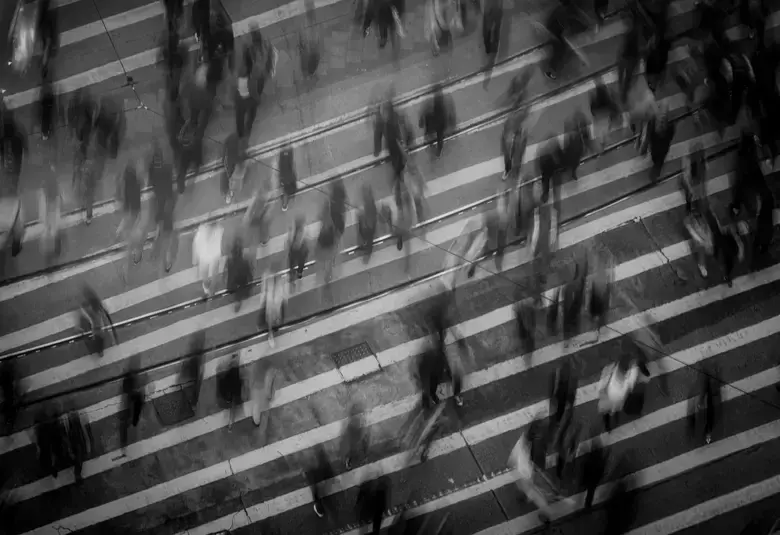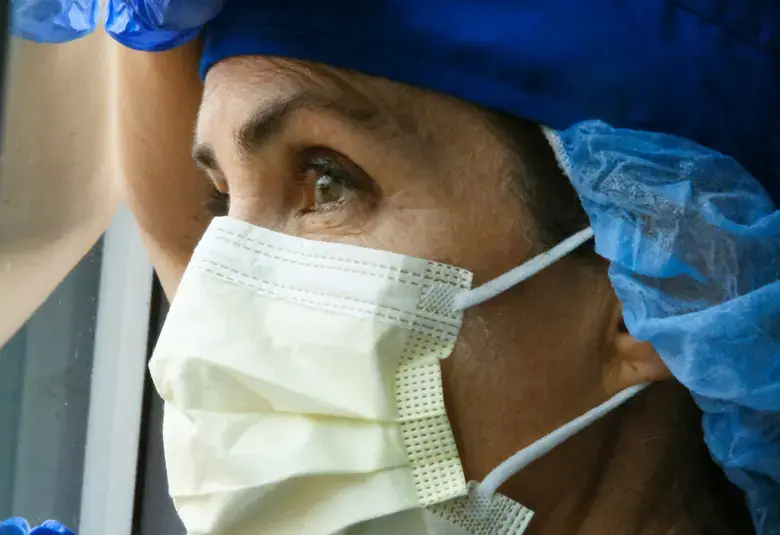Among clinicians’ responsibilities is a duty to safeguard themselves. Those looking after others with mental and physical health problems are far from invulnerable to distress, especially when faced with unprecedented numbers of patients, insufficient resources, and a high mortality rate among the old and less fit. Practical suggestions on prevention and coping can be found in this article.
임상의들의 책임 중에는 스스로를 보호해야 할 의무도 있습니다. 정신적, 신체적으로 문제를 가지고 있는 환자들을 돌보는 임상의들은 원래도 고충(distress)으로부터 자유롭기는 어려운데, 특히, 유례 없이 많은 수의 환자, 자원 부족, 높은 노약자 사망률에 직면했을 때는 더욱 그렇습니다. 본 기사에서는 고충을 예방하고 적절히 대응하는 실질적인 방법을 제안합니다.
On April 1st 2020, Medscape listed the names of more than a hundred healthcare workers who had died of COVID-19.1 Many thousands worldwide have been infected.
2020년 4월 1일, 의학 전문 웹사이트 메드스케이프(Medscape)는 코로나19 감염으로 사망한 100명이 넘는 보건의료 종사자들의 성명을 게재했습니다.1 또한, 전 세계적으로 수천 명의 보건의료 종사자들이 감염된 것으로 나타나고 있습니다.
The need to survive this crisis is paramount. But there are less obvious risks to the health of those who are looking after unparalleled numbers of critically ill patients.
무엇보다도 이 위기 속에서 살아남는 것이 중요합니다. 그러나 그 어느 때보다도 많은 수의 중환자를 감당해야 하는 보건의료 종사자들의 건강에는 명확하지 않은 위험요소들도 있습니다.
Emotional exhaustion and feelings of failure contribute to the condition commonly referred to as “burnout”.2 Among the mental health consequences of burnout are depression, alcohol abuse and suicidal ideation.3 Burnout is unfortunately common among clinicians in normal times.2,3 And these are not normal times.
정서적 소진과 실패감은 흔히 '번아웃(burnout)'이라고 일컫는 상태로 이어집니다.2 번아웃으로 인해 우울증, 알코올 남용, 자살생각 등의 정신 건강 문제를 겪을 수 있습니다.3 불행하게도 임상의들에게 번아웃은 평상시에도 흔합니다.2,3 더군다나 지금은 평상시가 아닙니다.
Emotional exhaustion and feelings of failure are unfortunately common among clinicians in normal times. And these are not normal times
불행하게도 평상시에도 임상의들에게 정서적 소진과 실패감 경험은 흔합니다. 더군다나 지금은 평상시가 아닙니다.
Challenges never seen before
전례 없는 위기
Two specific examples reflect stresses of a kind not previously encountered.
두 개의 구체적인 예시들은 이전에 겪어 보지 않은 종류의 스트레스들을 보여주고 있습니다.
A recent study noted how full societal lockdown leads to signs of exhaustion among nursing home staff within a month.4 Secondly, those working in intensive care face what has been termed “the toughest triage” doctors are ever likely to encounter when they have to ration ventilators among equally sick people.5 When such decisions violate a physician’s moral or ethical code, the “moral injury” can be profound.6
최근 한 연구에서는 사회적 봉쇄가 요양원 직원들에게 어떻게 한 달 안에 소진 징후(signs of exhaustion)를 유발할 수 있는지에 주목했습니다.4 두 번째로 중환자실의 임상의들은 동일하게 위중한 환자들을 두고 인공 호흡기를 배정해야하는 '가장 어려운 환자분류(the toughest triage)'라고 불리우는 상황에 직면하고 있습니다.5 이러한 의사 결정이 각 임상의의 도덕적 또는 윤리적 규범에 위배될 때 '도덕적 상처(moral injury)'가 심각해질 수 있습니다.6
Suggestions as to how the mental health consequences can be mitigated include preparing staff honestly for difficult decisions they will have to make, providing forums in which the emotional challenges of doing so can safely be discussed, and supportive supervision.6
정신 건강에 미치는 영향을 완화할 수 있는 방법에는 결정을 해야 할 때 정직하게 의사 결정을 할 수 있도록 하는 준비, 정서적 문제에 대해 안전하게 논의할 수 있는 토론의 장 제공, 힘이 되어주는 지도 및 감독 등이 필요합니다.6
Practical suggestions on prevention and coping
실질적인 예방 및 대응 방법 제안
In terms of managing the mental wellbeing of healthcare providers more generally, How Healthcare Personnel Can Help Take Care of Themselves is among a set of resources brought together by the American Psychiatric Association in response to the COVID-19 pandemic.7
보건의료 제공자들의 정신건강 관리, 보다 일반적으로는 '보건의료인들이 스스로를 돌볼 수 있도록 돕는 방법(How Healthcare Personnel Can Help Take Care of Themselves)'은 코로나19 대유행에 대응하여 미국정신의학회(American Psychiatric Association)가 취합한 여러 자료 중 하나이다.7
“Physician heal yourself” is an age-old exhortation. To that we could now add “Physician, keep yourself healthy”
"의사여, 네 자신을 치유하라(Physician, heal yourself)"라는 고대의 격언은 오래된 권고 사항입니다. 이제는 이 격언에 "의사여, 네 자신의 건강을 지켜라(Physician, keep yourself healthy)"라고 덧붙여 권장할 수 있습니다
Among the recommendations are:
의료인을 위한 권장 사항은 다음과 같습니다.
- Ensure you meet your physical needs for hydration, food and sleep
- Take regular breaks
- Check in with loved ones
- Monitor yourself for stress reactions
- Ensure that your employer has a plan to cope with the outbreak and that you adhere to guidance
- 수분 및 음식 섭취, 충분한 수면 등 신체적 요구 충족하기
- 규칙적으로 휴식 취하기
- 사랑하는 사람들과 연락하기
- 본인의 스트레스 반응 주시하기
- 회사가 코로나19 발생 대응 계획을 갖추고 있고, 자신이 해당 지침을 준수하고 있는지 확인하기
Those working with people who are infected are urged to have frank discussions with their family about the risk to themselves and their loved ones; steps being taken to minimize that risk; and the possibility of quarantine.
감염된 사람들과 함께 일하는 사람들은 자신과 주변인들이 처한 위험, 해당 위험을 줄이기 위한 조치들, 격리 가능성 등에 대한 가족과의 솔직한 의논이 강력히 권고됩니다.
This advice is based in part on the publications Taking Care of Patients During the Coronavirus Outbreak: A Guide for Psychiatrists; and Psychological Effects of Quarantine During the Coronavirus Outbreak. Both are from the Center for the Study of Traumatic Stress, Uniformed Services University, Bethesda, MD.
이 내용은 '코로나19 확산 중 환자 관리: 정신과 전문의를 위한 지침(Taking Care of Patients During the Coronavirus Outbreak: A Guide for Psychiatrists)'과 '코로나19 확산 중 격리가 미치는 심리적 영향(Psychological Effects of Quarantine During the Coronavirus Outbreak)'에 근거했습니다. 이 두 지침은 미국 메릴랜드 주 베데스다 소재 국립군의관의과대학(USU) 외상스트레스연구센터(Center for the Study of Traumatic Stress)에서 배포하였습니다.
Our correspondent’s highlights from the symposium are meant as a fair representation of the scientific content presented. The views and opinions expressed on this page do not necessarily reflect those of Lundbeck.
본 기사는 토론회에서 발표된 과학 지식 내용을 공정하게 전달하였습니다. 본 기사에서 제시된 의견은 룬드벡의 의견과 다를 수 있습니다.




